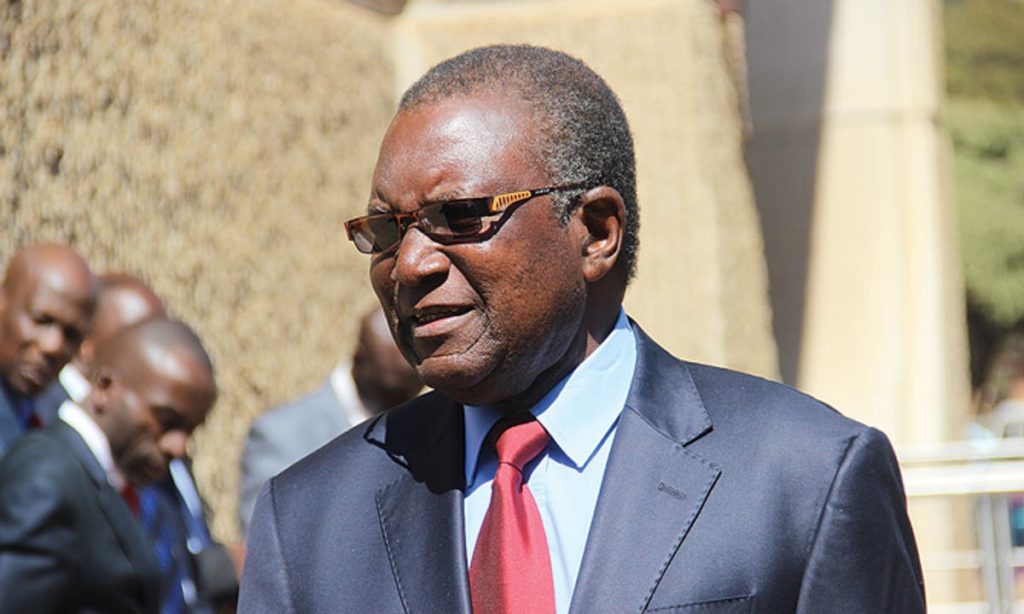MINISTER of State for Presidential Affairs and Monitoring Implementation of Government Programmes Jorum Gumbo says the government has so far completed 907 projects out of the 1 491 suggested by various ministries since 2018.
President Emmerson Mnangagwa tasked Gumbo’s ministry with the responsibility for the implementation and monitoring of government projects that have an impact on the livelihoods of people in line with the country’s vision 2030 to attain a middle-income economy status.
In that regard, Mnangagwa directed all ministries to identify projects they intended to complete within 100-day cycles.
Speaking to the Daily News this week, Gumbo said with the government now in its seventh 100-day cycle, more than half of the projects that various ministries proposed since 2018 were now complete.
“The total number of projects implemented across the country’s 10 provinces was 1 491 out of which 907 projects were completed and 584 are ongoing. It is also noted that out of the 1 491 projects, 915 which is 61,3 percent are infrastructure-related while 576, which is 38,7 percent are categorised as other projects.
“This gives credence to the thrust of the government to put emphasis on building infrastructure in order to create an enabling environment for economic development. Emphasis has been put on projects with positive multiplier effects across all sectors of the economy,” Gumbo said.
Some of the projects include transport, information communication technologies (ICT), education, health, housing, agriculture, water and sanitation, among others.
“Transport infrastructure development included rehabilitation, upgrading and expansion of selected roads and airports as well as dualisation of major roads.
“The government invested in ICT infrastructure to enhance public service delivery and increase access to information communication services countrywide. This resulted in the establishment of community information centres, containerised village information centres and fibre optic links,” Gumbo said.
The minister, who has since submitted an abridged version of all the projects each ministry is undertaking to the president, also said the government had embarked on initiatives in the health and education sectors, as well as housing.
“Focus was also on rehabilitation, expansion, construction and installation of energy infrastructure covering thermal, hydro, solar and other renewable energy sources,” he said further.
Gumbo said while the thrust of the government was to adhere to the 100-day cycles to complete projects, there were instances where that was impossible owing to various challenges.
“Some of the projects might not be completed within the 100 days because they might be long term. In that case the ministry responsible would be able to say by such a period we would have completed such a percentage of the project because some projects like construction might require involvement of other agencies which could delay procurement, disbursement of funds, issues like climate change and so on.
“But, basically what is supposed to be done is that within 100 days every ministry must come up with a minimum of five projects that they think they will have implemented.
“Each and every ministry therefore has got officers who are seconded to our ministry to work with the staff here.
“That officer in conjunction with the minister and permanent secretary of the ministry, are the ones who will give us the projects to be undertaken. What we then do is to say we would want to go and have a look at the project’s progress.
“But we cannot see all the projects. You may be interested to know that sometimes in a 100-day cycle, we are now in the seventh cycle and there are 114 projects that have been suggested by different ministries so you cannot monitor all of them otherwise I cannot be in the office,” Gumbo said.
He said sometimes they visit projects after getting invitations from the responsible ministries.
“Our aim is to see the impact of the project on the livelihoods of people and how the community is buying into the project. We also find out if there are challenges that might be impeding progress.
“On my return I write a report which I send to the president highlighting what I would have discovered both in the negative or positive. Where possible I come up with suggestions to the president so that in his own wisdom he advises the minister responsible on what he or she should do in order to complete the project,” he explained.
